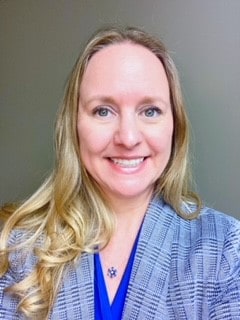
Assistant Professor from the School of Communication Science and Disorders, Dr. Shannon Hall-Mills, received the Accelerator Grant for a project that focuses on the lack of diversity in STEM, and how to bring in more under-represented individuals into the STEM field as early as middle school.
Hall-Mills is working alongside an interdisciplinary faculty team including Dr. Roxanne Hughes (PI; Research Associate, Director of the Center for Integrating Research and Learning National High Magnetic Field Laboratory) and Co-Investigators Drs. Theo Siegrist (Professor of Chemical and Biomedical Engineering, FAMU-FSU College of Engineering), Adam Baptiste (Researcher, College of Medicine), and Iskandaria Masduki (former Assistant Director of Education in the Innovation Hub).
The Accelerator grant will support the first wave of the project, which will be centered on collaborating with local middle schools in Leon County to hold focus group interviews with students from diverse backgrounds to gather their perspectives on STEM topics and careers, and conduct qualitative analyses. The goal of the group interviews is to gain an understanding of what could improve their interest and participation in STEM courses.
Many programs that already exist aim to improve STEM enrollment in higher education and high school. If students do not enter the pipeline of advanced science or math courses at an earlier grade level, they are far less likely to pursue STEM careers. Hall-Mills wants middle schoolers to be the focal point of this project because the earlier students enter this track, the greater their chances of going into the STEM field.
“The data we gather from the students in conjunction with input from school administrators and teachers will help us develop proposals for external funding. Our ultimate goal is to develop and implement a program to address students’ sense that STEM is relevant to them and their communities,” says Hall-Mills. “We expect that the program will lead to improved enrollment of underrepresented groups in advanced science and math courses. After we pilot the program locally, we will seek to implement the program more broadly.”
Hall-Mills and her team hope that this research will inform culturally-responsive programs to increase enrollment of under-represented student groups in advanced science and math courses, which in turn can lead to greater diversity in STEM careers.
“The fields of speech-language pathology and audiology face a similar challenge to STEM careers in terms of diversity of the workforce. I believe research in STEM trajectories also will provide insights for Communication Science and Disorders.”

